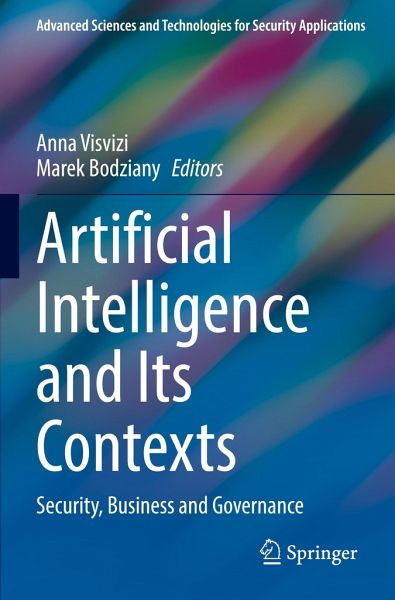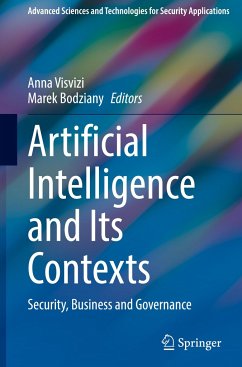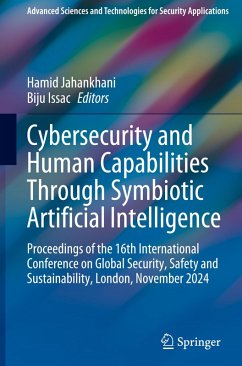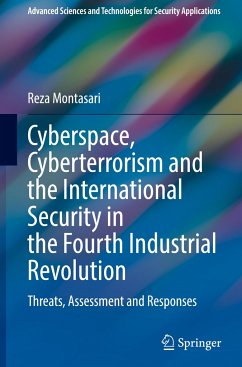
Artificial Intelligence and Its Contexts
Security, Business and Governance
Herausgegeben: Visvizi, Anna; Bodziany, Marek
Versandkostenfrei!
Versandfertig in 6-10 Tagen
121,99 €
inkl. MwSt.

PAYBACK Punkte
61 °P sammeln!
This book offers a comprehensive approach to the question of how artificial intelligence (AI) impacts politics, economy, and the society today. In this view, it is quintessential for understanding the complex nature of AI and its role in today's world.The book has been divided into three parts. Part one is devoted to the question of how AI will be used for security and defense purposes, including combat in war zones. Part two looks at the value added of AI and machine learning for decision-making in the fields of politics and business. Part three consists of case studies-covering the EU, the U...
This book offers a comprehensive approach to the question of how artificial intelligence (AI) impacts politics, economy, and the society today. In this view, it is quintessential for understanding the complex nature of AI and its role in today's world.
The book has been divided into three parts. Part one is devoted to the question of how AI will be used for security and defense purposes, including combat in war zones. Part two looks at the value added of AI and machine learning for decision-making in the fields of politics and business. Part three consists of case studies-covering the EU, the USA, Saudi Arabia, Portugal, and Poland-that discuss how AI is being used in the realms of politics, security and defense.
The discussion in the book opens with the question of the nature of AI, as well as of ethics and the use of AI in combat. Subsequently, the argument covers issues as diverse as the militarization of AI, the use of AI in strategic studies and military strategydesign. These topics are followed by an insight into AI and strategic communication (StratCom), including disinformation, as well as into AI and finance. The case-studies included in part 3 of the book offer a captivating overview of how AI is being employed to stimulate growth and development, to promote data- and evidence-driven policy-making, to enable efficient and inclusive digital transformation and other related issues.
Written by academics and practitioners in an academically sound, yet approachable manner, this volume queries issues and topics that form the thrust of processes that transform world politics, economics and society. As such, this volume will serve as the primer for students, researchers, lectures and other professionals who seek to understand and engage with the variety of issues AI implicates.
The book has been divided into three parts. Part one is devoted to the question of how AI will be used for security and defense purposes, including combat in war zones. Part two looks at the value added of AI and machine learning for decision-making in the fields of politics and business. Part three consists of case studies-covering the EU, the USA, Saudi Arabia, Portugal, and Poland-that discuss how AI is being used in the realms of politics, security and defense.
The discussion in the book opens with the question of the nature of AI, as well as of ethics and the use of AI in combat. Subsequently, the argument covers issues as diverse as the militarization of AI, the use of AI in strategic studies and military strategydesign. These topics are followed by an insight into AI and strategic communication (StratCom), including disinformation, as well as into AI and finance. The case-studies included in part 3 of the book offer a captivating overview of how AI is being employed to stimulate growth and development, to promote data- and evidence-driven policy-making, to enable efficient and inclusive digital transformation and other related issues.
Written by academics and practitioners in an academically sound, yet approachable manner, this volume queries issues and topics that form the thrust of processes that transform world politics, economics and society. As such, this volume will serve as the primer for students, researchers, lectures and other professionals who seek to understand and engage with the variety of issues AI implicates.














